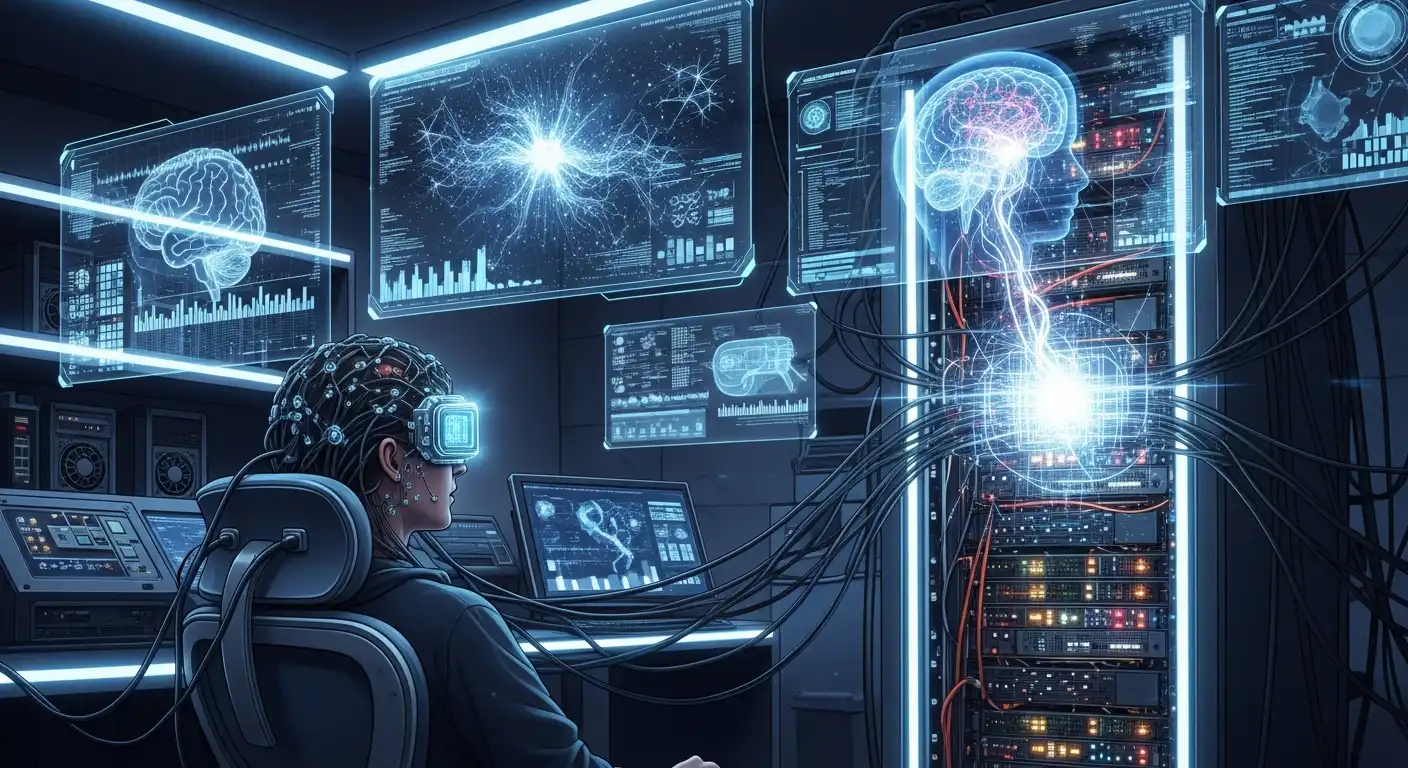In speculative science and futurism, mind uploading is one of the most intriguing and controversial ideas. It entails transferring the contents of a conscious mind, including memories, thoughts, and personality, into a digital or artificial substrate, effectively achieving a form of immortality by preserving one’s consciousness beyond the limitations of the biological body. This article explores the intricacies of mind uploading, delving into the scientific, philosophical, and ethical implications of this futuristic technology.
Understanding Mind Uploading
Mind uploading, also known as whole-brain emulation or substrate-independent minds, is based on the premise that consciousness and cognition arise from the complex interactions among neurons and synapses. By replicating these neural processes in a computational substrate, proponents of mind uploading envision transferring an individual’s consciousness from a biological brain to a digital or synthetic medium.
Theoretical Foundations
The theoretical foundations of mind uploading draw on insights from neuroscience, cognitive science, and computer science. Central to the concept is the idea that consciousness is an emergent property of neural networks rather than an intrinsic property of biological tissue. It suggests that, in theory, a sufficiently detailed simulation of neuronal activity could give rise to subjective experiences and self-awareness independent of the substrate in which it is implemented.
Technological Challenges
Despite its conceptual appeal, mind uploading faces numerous technological challenges that must be overcome before becoming a reality. These challenges include:
- Neuroscientific Understanding: A comprehensive understanding of the brain’s structure and function is necessary to simulate its activity accurately. While advancements in neuroscience have provided valuable insights, the brain’s complexity poses significant challenges for mapping its intricate networks and dynamics.
- Computational Complexity: Simulating the billions of neurons and trillions of synapses in the human brain with sufficient fidelity requires immense computational power and storage capacity. Current computing technologies cannot yet replicate the complexity and parallelism of neural networks at the required scale.
- Preservation of Identity: One of the fundamental philosophical questions surrounding mind uploading is whether the resulting digital consciousness would retain the original biological individual’s identity, subjective experiences, and continuity. Addressing these existential concerns is essential for ensuring the ethical and psychological implications of mind uploading.
Philosophical Implications
Mind uploading raises profound philosophical questions about the nature of consciousness, identity, and the human condition:
Consciousness and Subjectivity
Whether a digital replica of a conscious mind would possess subjective experiences and awareness akin to a biological brain remains a subject of philosophical debate. While some argue that consciousness is an emergent property of information processing, others contend that it may involve irreducible aspects that cannot be replicated in a computational substrate.
Personal Identity and Continuity
Personal identity and continuity are central to the philosophical discourse surrounding mind uploading. If consciousness can be transferred from one substrate to another, would the resulting digital entity be considered the same as the original biological person? The concepts of self-continuity and the preservation of identity across substrates pose complex philosophical challenges.
Existential and Ethical Concerns
The prospect of mind uploading raises existential and ethical concerns regarding autonomy, agency, and the nature of personhood. Questions about consent, identity rights, and the potential for coercion or manipulation in the digital realm underscore the importance of ethical frameworks and safeguards in the development and deployment of mind-uploading technologies.
Future Prospects and Considerations
While mind uploading remains speculative and fraught with uncertainties, it continues to captivate the imagination of scientists, futurists, and philosophers alike:
Technological Advancements
Advances in neuroscience, artificial intelligence, and computational modeling may help address technological barriers to mind uploading. Progress in brain-computer interfaces, neural prosthetics, and neuroinformatics may enable more accurate and comprehensive simulations of neural activity.
Ethical and Social Implications
As the capabilities of mind-uploading technologies evolve, it is imperative to consider the ethical, social, and legal implications of their development and deployment. Robust ethical frameworks, informed consent protocols, and transparency in algorithmic decision-making are essential to safeguarding individual rights, privacy, and autonomy in the digital realm.
Conclusion
Mind uploading represents a frontier of scientific exploration and philosophical inquiry, challenging our understanding of consciousness, identity, and the nature of being. While the technological realization of mind uploading remains speculative and distant, its implications for humanity’s future raise profound questions about the nature of existence and our place in the universe. As we continue to unravel the mysteries of the mind and push the boundaries of technological innovation, the journey toward understanding and harnessing the potential of mind uploading continues to shape our collective imagination and aspirations for the future.





